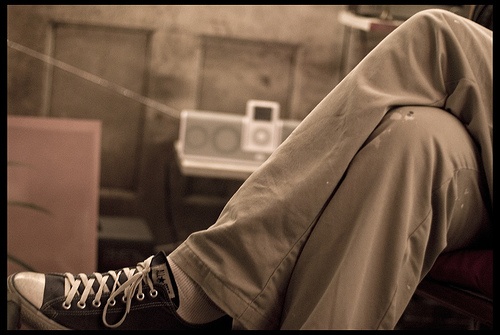A reader, Sarah, wrote a poignant comment under an earlier post that pulled at my heart and that I thought deserved a more prominent response. She movingly regrets that she finds it impossible to discover enchantment in Orthodox Judaism or any other Jewish movement. There’s much in what she says that I agree with, and that made me think of the very first entry I wrote here on this blog, about the condition of our being, most of us, spiritual “widows and orphans.” Writes Sarah:
I was the kind of child who attached like a barnacle to C.S. Lewis. I had the enchantment gene. All my life I’ve been drawn to science fiction, fantasy — and science. I believe fervently in a world that demands a response of wonder. I wish I could find it in my Judaism, but I never have. To me, it’s always been a rationalist religion. Ethically correct, but emotionally arid, perhaps because it has to be, since its first opponent was paganism. Maybe that’s just the particular congregation I grew up in (Conservative, with an aging population). But I have one very strong memory — I was seven, in a cow pasture, and I saw my first rainbow on a walk with my mother. I was transfixed. I remembered a few lines of Wordsworth and knew exactly what he meant. But my mother wanted to say a brocha, and I remember being frustrated with her for ruining the moment, for wanting to take the sublime and make it dutiful. I wish I could think of God as anything but someone whom I have disappointed so often that I can’t stand to look him in the eye. Really I do. The only time that I can really feel the connection between enchantment and religion is when I’m doing mathematics, when I believe wholeheartedly in the God of the primes, the God of representation theory, who has allowed us to see the hem of his garment. And when I understand something, I feel — tentatively — that he may have a personal concern for me, that there may be wonders in store. But that seems so improbable that I usually dismiss it. I like being a Jew. I miss reading Torah (it fell by the wayside in college. A casualty of factionalism, really; the Conservative kids don’t do it, and the Orthodox or Chabad kids don’t seem to want outsiders.) But if there’s wonder there, I’m blind to it. I see a lot of strictures, some with tremendous ethical force, some that seem arbitrary, some stunning in their brutality. I see flashes of poetry in the Psalms and the Song of Songs and the Song of the Sea, which my anti-aesthetic upbringing taught me to flinch from, because it wasn’t really “Jewish” to love beauty. I wish I could see wonder in Judaism. I can see it in science, in the Enlightenment values of reason and happiness and compassion, in poetry, in tacky fantasy…but I just can’t see it in my own religion.

